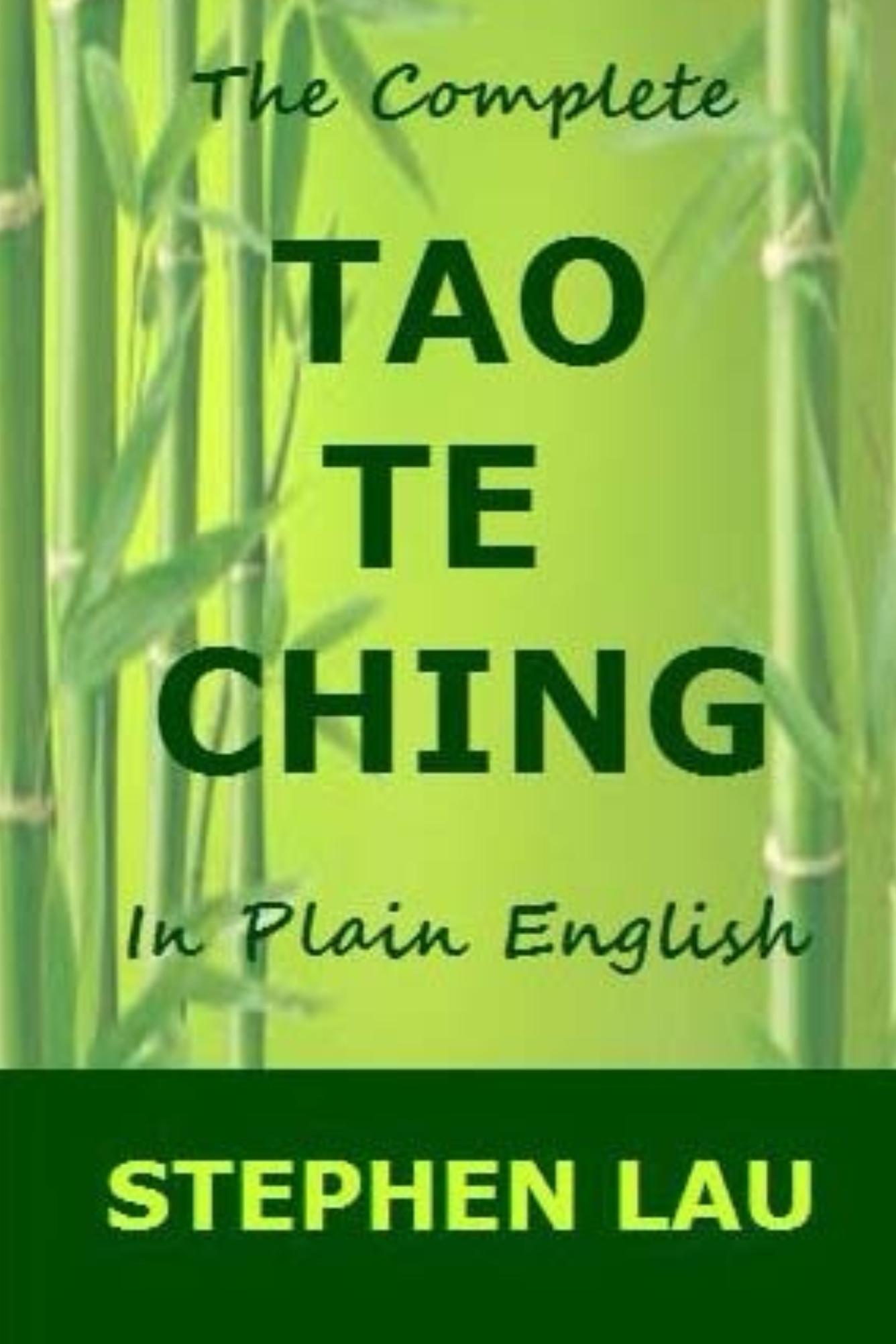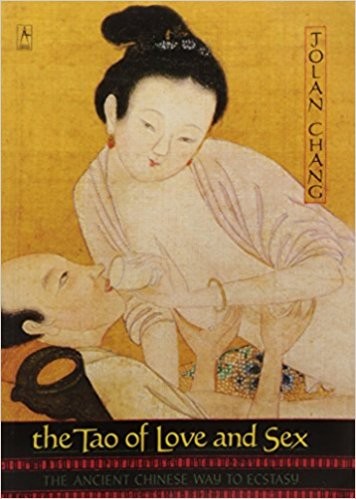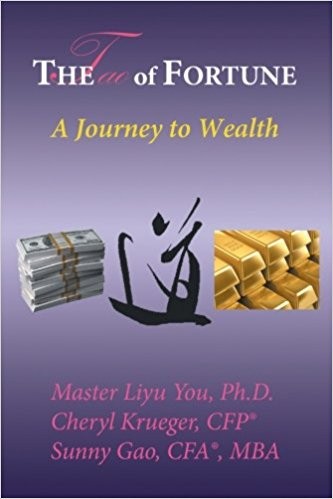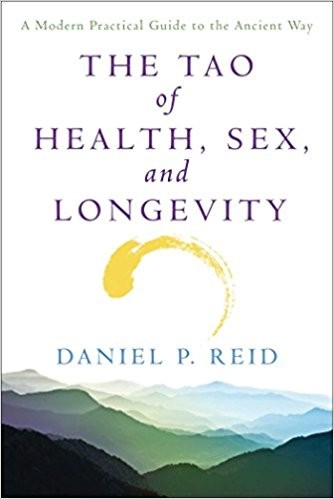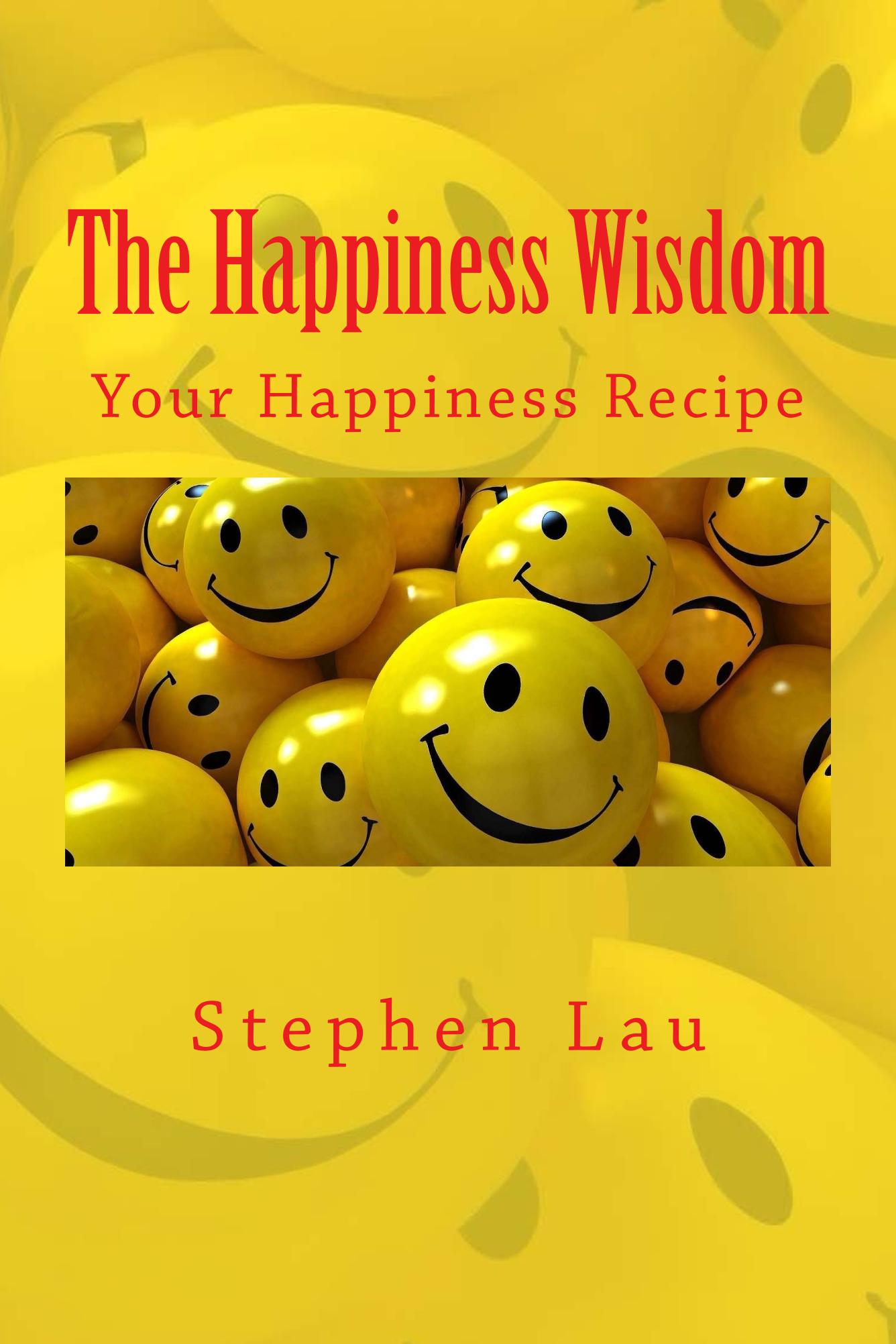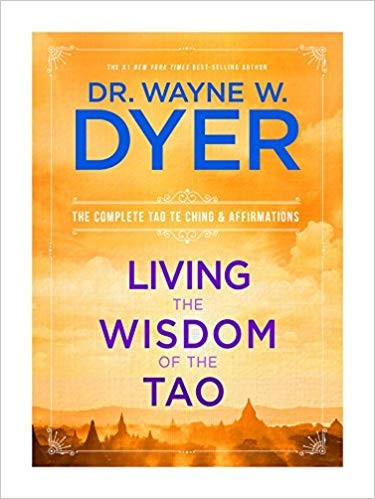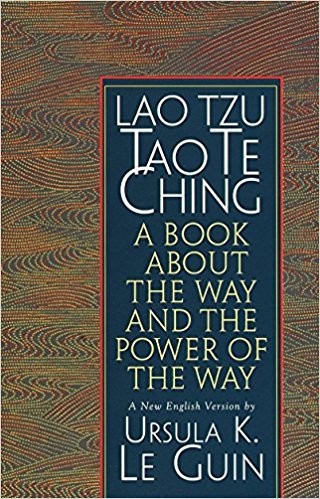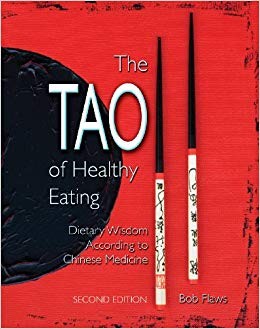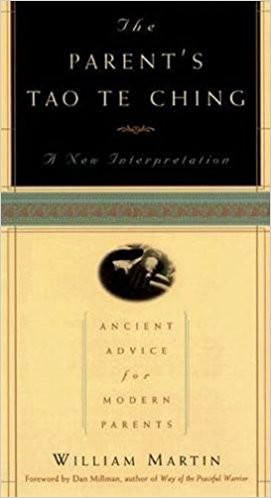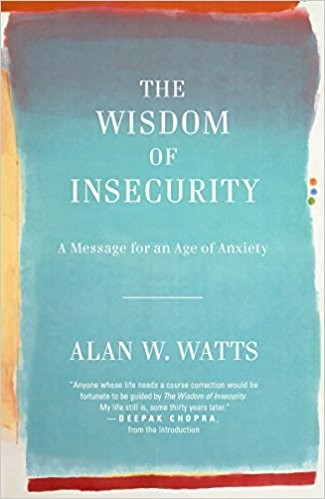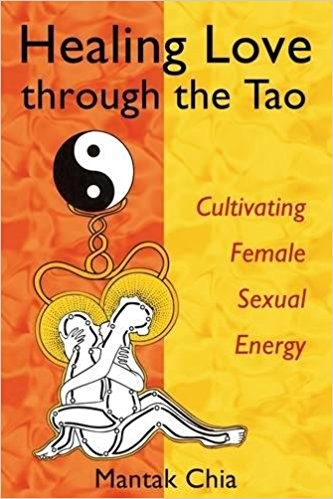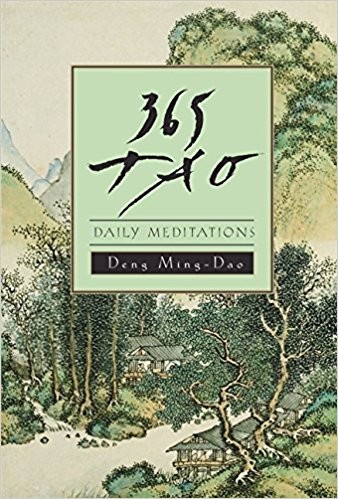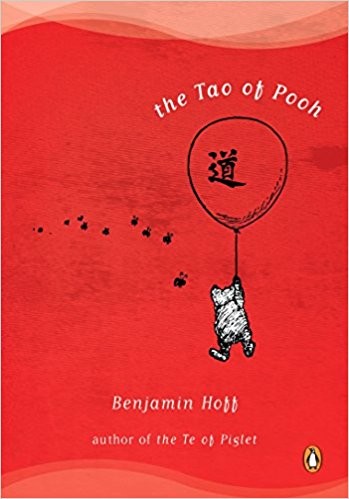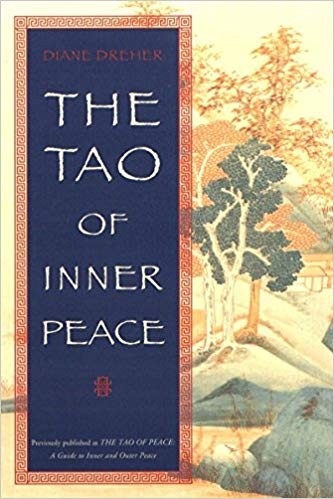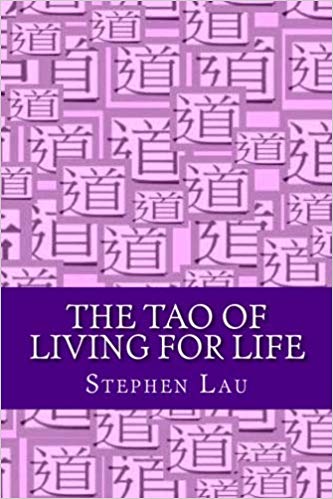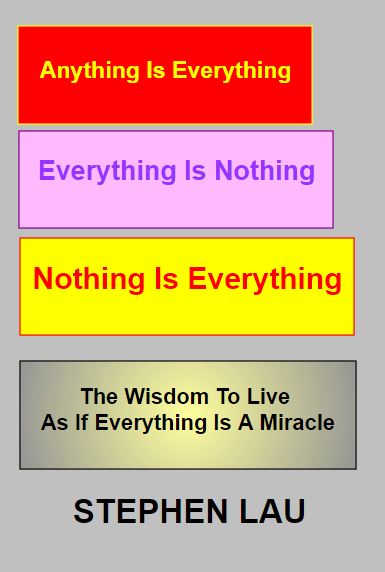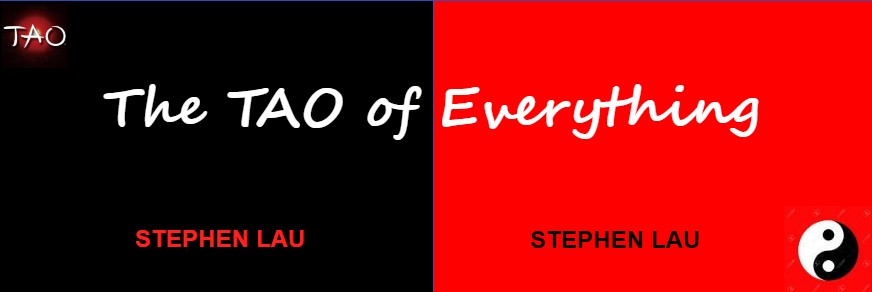

Selected TAO Wisdom Posts



LETTING GO IS THE WAY TO GO
“Letting go is emptying the mundane,
to be filled with heavenly grace.
Blessed is he who has an empty mind.
He will be filled with knowledge and wisdom from the Creator.
Blessed is he who has no attachment to worldly things.
He will be compensated with heavenly riches.
Blessed is he who has no ego-self.
He will be rewarded with humility to connect with the Creator.
Blessed is he who has no judgment of self and others.
He will find contentment and empathy in everyone.
Letting go of everything is the Way to the Creator.”
(Lao Tzu, Tao Te Ching, chapter 9)
“Not of the world” means letting go of all mundane matters in the physical world.
Attachment only reinforces your identification with the world, while detachment empties your mind of its invisible control and manipulation. Letting go is the beginning of humility.
With humility, comes enlightenment, and letting go becomes simple and spontaneous.
Stephen Lau
Copyright© by Stephen Lau
“Letting go is emptying the mundane,
to be filled with heavenly grace.
Blessed is he who has an empty mind.
He will be filled with knowledge and wisdom from the Creator.
Blessed is he who has no attachment to worldly things.
He will be compensated with heavenly riches.
Blessed is he who has no ego-self.
He will be rewarded with humility to connect with the Creator.
Blessed is he who has no judgment of self and others.
He will find contentment and empathy in everyone.
Letting go of everything is the Way to the Creator.”
(Lao Tzu, Tao Te Ching, chapter 9)
“Not of the world” means letting go of all mundane matters in the physical world.
Attachment only reinforces your identification with the world, while detachment empties your mind of its invisible control and manipulation. Letting go is the beginning of humility.
With humility, comes enlightenment, and letting go becomes simple and spontaneous.
Stephen Lau
Copyright© by Stephen Lau
LIVING IN A WORLD OD DEPRESSION
“Depression has been called the world's number one public health problem. In fact, depression is so widespread it is considered the common cold of psychiatric disturbances. But there is a grim difference between depression and a cold. Depression can kill you.“ David D. Burns
We all have a depressive mind because we are all living in a world of depression. The only difference is that our depression may all differ in intensity: slight, serious, or severe. The truth of the matter is that each and every one of us is depressed, without any exception, because we all experience our depressive episodes at some points during our lifespan, and it is very normal. However, many of us prefer to deny or ignore our emotional dysfunction due to the stigma that is often associated with depression.
Depression is not a new human disease or disorder; it is as ancient as man:
"so I have been allotted months of futility,
and nights of misery have been assigned to me.
4 When I lie down I think, ‘How long before I get up?’
The night drags on, and I toss and turn until dawn.
5 My body is clothed with worms and scabs,
my skin is broken and festering.
6 “My days are swifter than a weaver’s shuttle,
and they come to an end without hope.
7 Remember, O God, that my life is but a breath;
my eyes will never see happiness again.
8 The eye that now sees me will see me no longer;
you will look for me, but I will be no more.
9 As a cloud vanishes and is gone,
so one who goes down to the grave does not return.
10 He will never come to his house again;
his place will know him no more.
11 “Therefore I will not keep silent;
I will speak out in the anguish of my spirit,
I will complain in the bitterness of my soul." (Job 7: 3-11)
“Answer me quickly, Lord; my spirit fails. Do not hide your face from me or I will be like those who go down to the pit. Let the morning bring me word of your unfailing love, for I have put my trust in you. Show me the way I should go, for to you I entrust my life.”
(Psalm 143: 7-8)
In modern age, Sir Winston Churchill, the Prime Minister of Great Britain, underwent serious bouts of depression during his country's national crisis in World War II. The fact is that depression is no respecter of persons-even for those with very high I.Q., such as the Nobel Prize winning author Ernest Hemingway who committed suicide just as his father did with the comment “I’ll probably go the same way.” Indeed, many of us are vulnerable to this genetic mental disorder.
Sadly, depression is currently increasing at an alarming rate because the world we are now living in is getting more challenging, more complex, and more complicated each day passing-it has now become a world of depression.
Do not avoid depression with medications; instead, go through depression in order to overcome it. Follow the TAO, which is the Way through depression.
Stephen Lau
Copyright© by Stephen Lau
“Depression has been called the world's number one public health problem. In fact, depression is so widespread it is considered the common cold of psychiatric disturbances. But there is a grim difference between depression and a cold. Depression can kill you.“ David D. Burns
We all have a depressive mind because we are all living in a world of depression. The only difference is that our depression may all differ in intensity: slight, serious, or severe. The truth of the matter is that each and every one of us is depressed, without any exception, because we all experience our depressive episodes at some points during our lifespan, and it is very normal. However, many of us prefer to deny or ignore our emotional dysfunction due to the stigma that is often associated with depression.
Depression is not a new human disease or disorder; it is as ancient as man:
"so I have been allotted months of futility,
and nights of misery have been assigned to me.
4 When I lie down I think, ‘How long before I get up?’
The night drags on, and I toss and turn until dawn.
5 My body is clothed with worms and scabs,
my skin is broken and festering.
6 “My days are swifter than a weaver’s shuttle,
and they come to an end without hope.
7 Remember, O God, that my life is but a breath;
my eyes will never see happiness again.
8 The eye that now sees me will see me no longer;
you will look for me, but I will be no more.
9 As a cloud vanishes and is gone,
so one who goes down to the grave does not return.
10 He will never come to his house again;
his place will know him no more.
11 “Therefore I will not keep silent;
I will speak out in the anguish of my spirit,
I will complain in the bitterness of my soul." (Job 7: 3-11)
“Answer me quickly, Lord; my spirit fails. Do not hide your face from me or I will be like those who go down to the pit. Let the morning bring me word of your unfailing love, for I have put my trust in you. Show me the way I should go, for to you I entrust my life.”
(Psalm 143: 7-8)
In modern age, Sir Winston Churchill, the Prime Minister of Great Britain, underwent serious bouts of depression during his country's national crisis in World War II. The fact is that depression is no respecter of persons-even for those with very high I.Q., such as the Nobel Prize winning author Ernest Hemingway who committed suicide just as his father did with the comment “I’ll probably go the same way.” Indeed, many of us are vulnerable to this genetic mental disorder.
Sadly, depression is currently increasing at an alarming rate because the world we are now living in is getting more challenging, more complex, and more complicated each day passing-it has now become a world of depression.
Do not avoid depression with medications; instead, go through depression in order to overcome it. Follow the TAO, which is the Way through depression.
Stephen Lau
Copyright© by Stephen Lau
WHY LAO TZU AND NOT CONFUCIUS
The Two Greatest Thinkers
Confucius and Lao Tzu are two of the greatest thinkers in Chinese history. They were contemporaries. According to the legend, they met, disagreed, but respected each other’s differing philosophies. Both have significantly dominated and impacted Chinese life and culture in a way unequaled by similar philosophies in the West. However, from the contemporary point of view, Confucius’ popular philosophy seems more acceptable and persuasive to people in general, whereas Lao Tzu’s unconventional wisdom may seem more exclusive, appealing to some but not to all and sundry.
Their Differences and Similarities
Confucius, as an advisor to a ruler in his time, believed in social and political wisdom. He sought to change society for the better, using heroes of the past as role models. Specifically, he focused on education and learning from the wise for personal improvement to enhance human wisdom, and henceforth to promote social advancement.
“I am not one who was born in the possession of knowledge; I am one who is fond of antiquity and earnest in seeking it there.” (Confucius)
“The essence of knowledge is, having it, to apply it; not having it, to confess your ignorance.” (Confucius)
“A virtuous man wishing to establish himself seeks also to establish others, and wishing to enlighten himself, seeks also to enlighten others.” (Confucius)
Lao Tzu’s wisdom is more at a personal level rather than a political or social one. Contrary to Confucius’ belief that synthesis of human effort can make life better for everyone, Lao Tzu believes that not everyone could attain wisdom through extra human effort.
“Not knowing the Way,
but pretending we know,
we remain ignorant, and suffer.”
(Chapter 71, Tao Te Ching)
In addition, even an individual with great wisdom can still be uninformed, and, worse, might also act on his or her own ignorance under the pretense of knowledge. According to Lao Tzu, that is how human wisdom falters and fails:
“Reaching out for it, we fall.
Running to catch it, we stumble.
Pretending to become enlightened, we become confused.
Trying to do it right, we fail.
Looking for praise, we become disappointed.
Holding onto it, we lose.”
(Chapter 24, Tao Te Ching)
It must also be pointed out that over time different religions began to evolve from the philosophy of Lao Tzu. For that reason, nowadays, many people have erroneously come to believe that Buddhism, Zen, and other Taoist religious practices in worshipping many gods and ancestors were all related to Tao, or that Tao was a religion in itself. But nothing could be further from the truth. Lao Tzu believes that the entire universe with everything in it flows with a mysterious force that not only controls but also maintains the natural order of all things. That ultimate reality is nondescript; all we can know is that it is not only within and outside us, but also everywhere and nowhere.
“The Way to the Creator existed
before the universe was created.
Its essence is formless and unchanging.
It is present wherever we turn,
providing compassion to all beings.
It comes from the Creator of the universe,
who has no name.
To identify him, call him the Creator.
He can also be called the Great Mystery,
from whom we come, in whom we live, and to whom we return.”
(Chapter 25, Tao Te Ching)
Accordingly, Lao Tzu’s emphasis is on to be, rather than to do-which is the opposite of Confucius’ focus on the way of doing, instead of being.
Confucius’ profuse ethics and teachings were recorded, mostly by his students, in the classics of Confucianism: the Four Books on the golden mean or the golden rule to gain perfect virtue, and the Five Classics on ancient rites, social forms and court ceremonies; documents and speeches; poems and folk songs for ideal living.
Lao Tzu, on the other hand, does not believe in words. Tao Te Ching, his only piece of writing, containing eighty-one short chapters with only 5,000 words, was completed in only three days.
Lao Tzu shows you what human wisdom truly is, while Confucius shows you how to live in peace and harmony in society. Lao Tzu's wisdom is individualized, while Confucius' wisdom is generalized.
Stephen Lau
Copyright© by Stephen Lau
The Two Greatest Thinkers
Confucius and Lao Tzu are two of the greatest thinkers in Chinese history. They were contemporaries. According to the legend, they met, disagreed, but respected each other’s differing philosophies. Both have significantly dominated and impacted Chinese life and culture in a way unequaled by similar philosophies in the West. However, from the contemporary point of view, Confucius’ popular philosophy seems more acceptable and persuasive to people in general, whereas Lao Tzu’s unconventional wisdom may seem more exclusive, appealing to some but not to all and sundry.
Their Differences and Similarities
Confucius, as an advisor to a ruler in his time, believed in social and political wisdom. He sought to change society for the better, using heroes of the past as role models. Specifically, he focused on education and learning from the wise for personal improvement to enhance human wisdom, and henceforth to promote social advancement.
“I am not one who was born in the possession of knowledge; I am one who is fond of antiquity and earnest in seeking it there.” (Confucius)
“The essence of knowledge is, having it, to apply it; not having it, to confess your ignorance.” (Confucius)
“A virtuous man wishing to establish himself seeks also to establish others, and wishing to enlighten himself, seeks also to enlighten others.” (Confucius)
Lao Tzu’s wisdom is more at a personal level rather than a political or social one. Contrary to Confucius’ belief that synthesis of human effort can make life better for everyone, Lao Tzu believes that not everyone could attain wisdom through extra human effort.
“Not knowing the Way,
but pretending we know,
we remain ignorant, and suffer.”
(Chapter 71, Tao Te Ching)
In addition, even an individual with great wisdom can still be uninformed, and, worse, might also act on his or her own ignorance under the pretense of knowledge. According to Lao Tzu, that is how human wisdom falters and fails:
“Reaching out for it, we fall.
Running to catch it, we stumble.
Pretending to become enlightened, we become confused.
Trying to do it right, we fail.
Looking for praise, we become disappointed.
Holding onto it, we lose.”
(Chapter 24, Tao Te Ching)
It must also be pointed out that over time different religions began to evolve from the philosophy of Lao Tzu. For that reason, nowadays, many people have erroneously come to believe that Buddhism, Zen, and other Taoist religious practices in worshipping many gods and ancestors were all related to Tao, or that Tao was a religion in itself. But nothing could be further from the truth. Lao Tzu believes that the entire universe with everything in it flows with a mysterious force that not only controls but also maintains the natural order of all things. That ultimate reality is nondescript; all we can know is that it is not only within and outside us, but also everywhere and nowhere.
“The Way to the Creator existed
before the universe was created.
Its essence is formless and unchanging.
It is present wherever we turn,
providing compassion to all beings.
It comes from the Creator of the universe,
who has no name.
To identify him, call him the Creator.
He can also be called the Great Mystery,
from whom we come, in whom we live, and to whom we return.”
(Chapter 25, Tao Te Ching)
Accordingly, Lao Tzu’s emphasis is on to be, rather than to do-which is the opposite of Confucius’ focus on the way of doing, instead of being.
Confucius’ profuse ethics and teachings were recorded, mostly by his students, in the classics of Confucianism: the Four Books on the golden mean or the golden rule to gain perfect virtue, and the Five Classics on ancient rites, social forms and court ceremonies; documents and speeches; poems and folk songs for ideal living.
Lao Tzu, on the other hand, does not believe in words. Tao Te Ching, his only piece of writing, containing eighty-one short chapters with only 5,000 words, was completed in only three days.
Lao Tzu shows you what human wisdom truly is, while Confucius shows you how to live in peace and harmony in society. Lao Tzu's wisdom is individualized, while Confucius' wisdom is generalized.
Stephen Lau
Copyright© by Stephen Lau
WISDOM BEGINS WITH AN EMPTY MIND
“Focusing on status gives us pride, and not humility.
Hoarding worldly riches deprives us of heavenly assets.
An empty mind with no craving and no expectation helps us let go of everything.
Being in the world and not of the world, we attain heavenly grace.
With heavenly grace, we become pure and selfless.
And everything settles into its own perfect place.”
(Lao Tzu, Tao Te Ching, chapter 3)
You are in the world, but not of the world.
So, do not identify yourself with anything and everything in the world-the car you are driving, the neighborhood you are living in, the name-brand dress you are wearing, and among many others.
What is wrong with them? You become attached to them; they only enhance and inflate your ego, making you shackled to the material world.
With a deflated ego, on the other hand, you may become enlightened and see who you really are, and not what people think you are. Enlightenment opens the door to the TAO of living for life.
The reality is that many of us are not only in the world, but also of the world; so, we are living not for life, but for the world.
We are all somehow connected with one another, so focusing on yourself is not the Way of TAO, and not the TAO of living for life.
Human wisdom requires only an empty mind, not necessarily acquisition of knowledge. As a matter of fact, the more you know, the less wise you may become. The explanation is that knowledge previously acquired and accumulated often pre-conditions your thinking mind, and thus distorting your perceptions.
Human wisdom is already inside you. What you need to do is to search for it with self-intuitive questions.
Remember: less for more, and more for less; ask and you shall receive.
Stephen Lau
Copyright© by Stephen Lau
“Focusing on status gives us pride, and not humility.
Hoarding worldly riches deprives us of heavenly assets.
An empty mind with no craving and no expectation helps us let go of everything.
Being in the world and not of the world, we attain heavenly grace.
With heavenly grace, we become pure and selfless.
And everything settles into its own perfect place.”
(Lao Tzu, Tao Te Ching, chapter 3)
You are in the world, but not of the world.
So, do not identify yourself with anything and everything in the world-the car you are driving, the neighborhood you are living in, the name-brand dress you are wearing, and among many others.
What is wrong with them? You become attached to them; they only enhance and inflate your ego, making you shackled to the material world.
With a deflated ego, on the other hand, you may become enlightened and see who you really are, and not what people think you are. Enlightenment opens the door to the TAO of living for life.
The reality is that many of us are not only in the world, but also of the world; so, we are living not for life, but for the world.
We are all somehow connected with one another, so focusing on yourself is not the Way of TAO, and not the TAO of living for life.
Human wisdom requires only an empty mind, not necessarily acquisition of knowledge. As a matter of fact, the more you know, the less wise you may become. The explanation is that knowledge previously acquired and accumulated often pre-conditions your thinking mind, and thus distorting your perceptions.
Human wisdom is already inside you. What you need to do is to search for it with self-intuitive questions.
Remember: less for more, and more for less; ask and you shall receive.
Stephen Lau
Copyright© by Stephen Lau
TAO Is EFFORTLESS
“Stop striving to be righteous and wise to attain salvation,
which comes not from our efforts, not something we must earn.
Stop abiding by rules and regulations to secure fairness and justice.
Compassion and loving-kindness come naturally to us.
Stop accumulating riches by being smart.
Heavenly assets are freely available to all.
The above are merely superficial suggestions.
The ultimate truths have to be self-intuited:
be simple, be selfless, and be non-judgmental.
Enlightenment may arrive effortlessly.”
(Lao Tzu, Tao Te Ching, chapter 19)
If you are simple with no attachment to the world, selfless with love and compassion for others, non-judgmental with no picking and no choosing, as well as complaisant with no expectation of the outcome, the TAO of living for life will naturally come to you without any effort.
TAO is effortless self-intuition, which is enlightenment of the mind.
“We are all desirous of making the right choices,
fearful of making the wrong ones.
We all pursue what others say is good,
avoiding what they say is bad.
We all follow the popular wisdom of judgment and preference,
instead of the wisdom of the Creator,
requiring us to be undesirous and unperturbed, just like a newborn.
The wisdom of the Creator may seem unreal, and even foolish,
while the worldly wisdom may seem smart and popular.
The Way to enlightenment and salvation is narrow and restricted,
while the way to human folly is open and wide.
The foolish all have goals.
The wise are humble and stubborn.
They alone trust the Creator,
and not the world He created.”
(Lao Tzu, Tao Te Ching, chapter 20)
Fear and worry are deeply rooted in the human mind, because we all want things our way, or no way, with no exception.
But, unfortunately, the human mind is always obsessed with the reality that things seldom, if ever, go our way.
So, fear and worry may make you want to follow the popular wisdom of the world: seeking what is good, and avoiding what is bad.
But the wisdom of the Creator may be unfathomable and unattainable to many, especially those who are proud, and who want things their way or no way.
Stephen Lau
Copyright© by Stephen Lau
“Stop striving to be righteous and wise to attain salvation,
which comes not from our efforts, not something we must earn.
Stop abiding by rules and regulations to secure fairness and justice.
Compassion and loving-kindness come naturally to us.
Stop accumulating riches by being smart.
Heavenly assets are freely available to all.
The above are merely superficial suggestions.
The ultimate truths have to be self-intuited:
be simple, be selfless, and be non-judgmental.
Enlightenment may arrive effortlessly.”
(Lao Tzu, Tao Te Ching, chapter 19)
If you are simple with no attachment to the world, selfless with love and compassion for others, non-judgmental with no picking and no choosing, as well as complaisant with no expectation of the outcome, the TAO of living for life will naturally come to you without any effort.
TAO is effortless self-intuition, which is enlightenment of the mind.
“We are all desirous of making the right choices,
fearful of making the wrong ones.
We all pursue what others say is good,
avoiding what they say is bad.
We all follow the popular wisdom of judgment and preference,
instead of the wisdom of the Creator,
requiring us to be undesirous and unperturbed, just like a newborn.
The wisdom of the Creator may seem unreal, and even foolish,
while the worldly wisdom may seem smart and popular.
The Way to enlightenment and salvation is narrow and restricted,
while the way to human folly is open and wide.
The foolish all have goals.
The wise are humble and stubborn.
They alone trust the Creator,
and not the world He created.”
(Lao Tzu, Tao Te Ching, chapter 20)
Fear and worry are deeply rooted in the human mind, because we all want things our way, or no way, with no exception.
But, unfortunately, the human mind is always obsessed with the reality that things seldom, if ever, go our way.
So, fear and worry may make you want to follow the popular wisdom of the world: seeking what is good, and avoiding what is bad.
But the wisdom of the Creator may be unfathomable and unattainable to many, especially those who are proud, and who want things their way or no way.
Stephen Lau
Copyright© by Stephen Lau
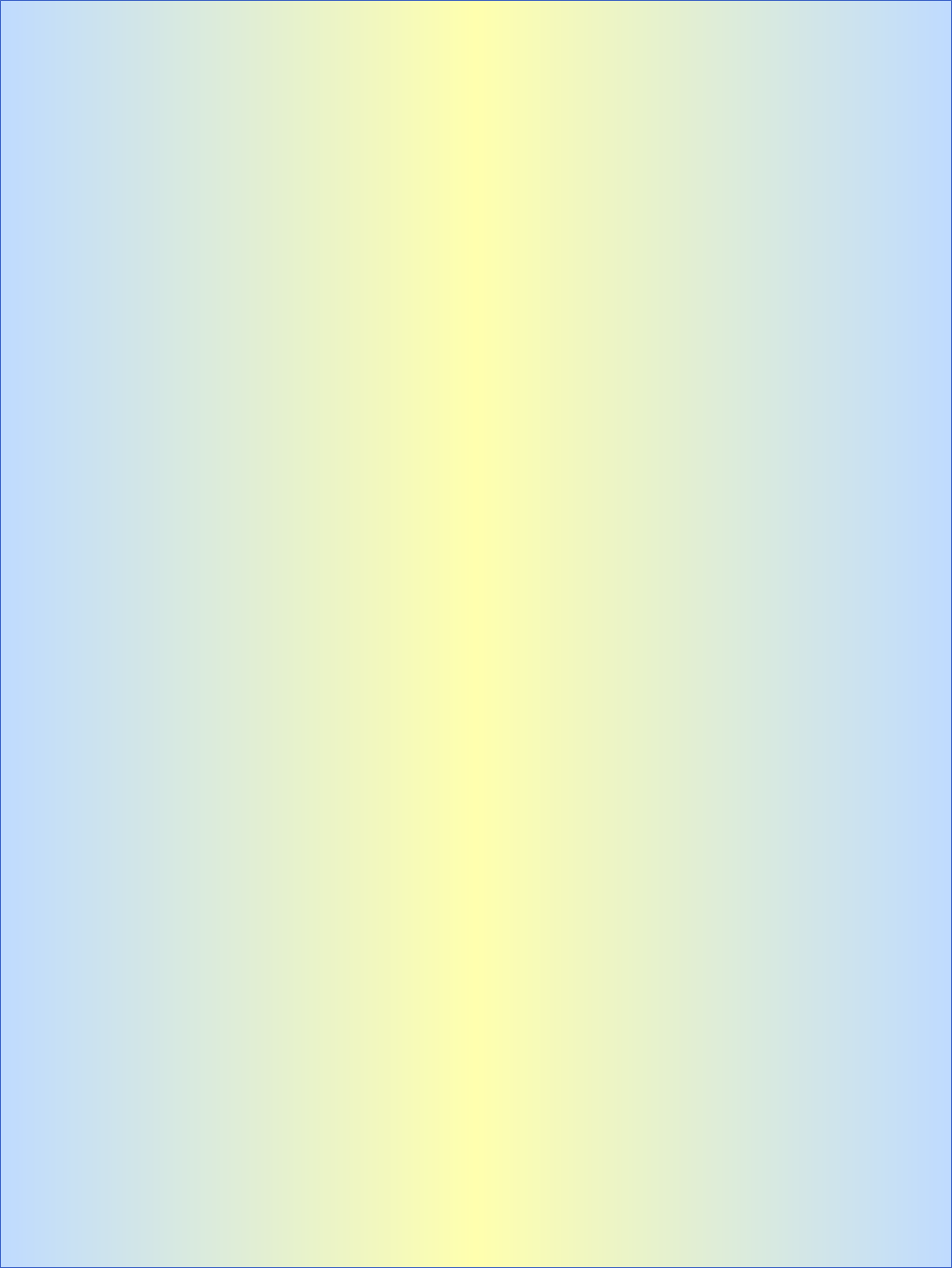
AUNDANCE AND EMPTINESS
We all want abundance, not emptiness. We all desire abundance in education, family, relationships, profession, and wealth; nobody wants emptiness-one thing nobody wants in life. Abundance often becomes attachments in our lives. Ironically enough, we need emptiness to attain the ultimate truths of life and living, which is wisdom in living.
To attain this wisdom, we need emptiness. First of all, we need an empty mind with reverse thinking to think differently, not according to conventional wisdom. Then, we need to become empty consciously, which is letting go of all attachments. Attachments are emotional distractions of the mind that prevent clarity of thinking, without which there is no access to the ultimate truths of life and living. Knowing these ultimate truths enables you to live as if everything is a miracle.
Before we can receive, we must let go first. Letting go of all attachments to the material world is the first step we must take. It is more blessed to give than to receive. But many of us don't believe in that: instead, we think we will give out or let go after we have received. Letting go is difficult because it requires the profound human wisdom of Lao Tzu.
First and foremost, you need wisdom to "rethink" your mind, which may not be telling you the whole truth about your thoughts and life experiences; you need wisdom to "renew" your body, which lives in a toxic physical environment; you need spiritual wisdom to "reconnect" your soul, which is the essence of your spirituality. Most importantly, you need wisdom to "realign" your whole being because the body, the mind, and the soul are all interconnected and interdependent on one another for your well-being to live your life as if everything is a miracle. Your mind is the road map and your soul is the compass; without them, your body is going nowhere, and you will live your life as if nothing is a miracle.
Remember, emptiness leads to enlightenment. If spiritual wisdom has to enter you and manifest itself within you, it will need some empty space. With enlightenment, you will become a better and happier you. With enlightenment, you will live a stress-free life. Learn how to overcome your stress by letting go your ego-self: No Ego No Stress!
Stephen Lau
Copyright© by Stephen Lau
We all want abundance, not emptiness. We all desire abundance in education, family, relationships, profession, and wealth; nobody wants emptiness-one thing nobody wants in life. Abundance often becomes attachments in our lives. Ironically enough, we need emptiness to attain the ultimate truths of life and living, which is wisdom in living.
To attain this wisdom, we need emptiness. First of all, we need an empty mind with reverse thinking to think differently, not according to conventional wisdom. Then, we need to become empty consciously, which is letting go of all attachments. Attachments are emotional distractions of the mind that prevent clarity of thinking, without which there is no access to the ultimate truths of life and living. Knowing these ultimate truths enables you to live as if everything is a miracle.
Before we can receive, we must let go first. Letting go of all attachments to the material world is the first step we must take. It is more blessed to give than to receive. But many of us don't believe in that: instead, we think we will give out or let go after we have received. Letting go is difficult because it requires the profound human wisdom of Lao Tzu.
First and foremost, you need wisdom to "rethink" your mind, which may not be telling you the whole truth about your thoughts and life experiences; you need wisdom to "renew" your body, which lives in a toxic physical environment; you need spiritual wisdom to "reconnect" your soul, which is the essence of your spirituality. Most importantly, you need wisdom to "realign" your whole being because the body, the mind, and the soul are all interconnected and interdependent on one another for your well-being to live your life as if everything is a miracle. Your mind is the road map and your soul is the compass; without them, your body is going nowhere, and you will live your life as if nothing is a miracle.
Remember, emptiness leads to enlightenment. If spiritual wisdom has to enter you and manifest itself within you, it will need some empty space. With enlightenment, you will become a better and happier you. With enlightenment, you will live a stress-free life. Learn how to overcome your stress by letting go your ego-self: No Ego No Stress!
Stephen Lau
Copyright© by Stephen Lau
